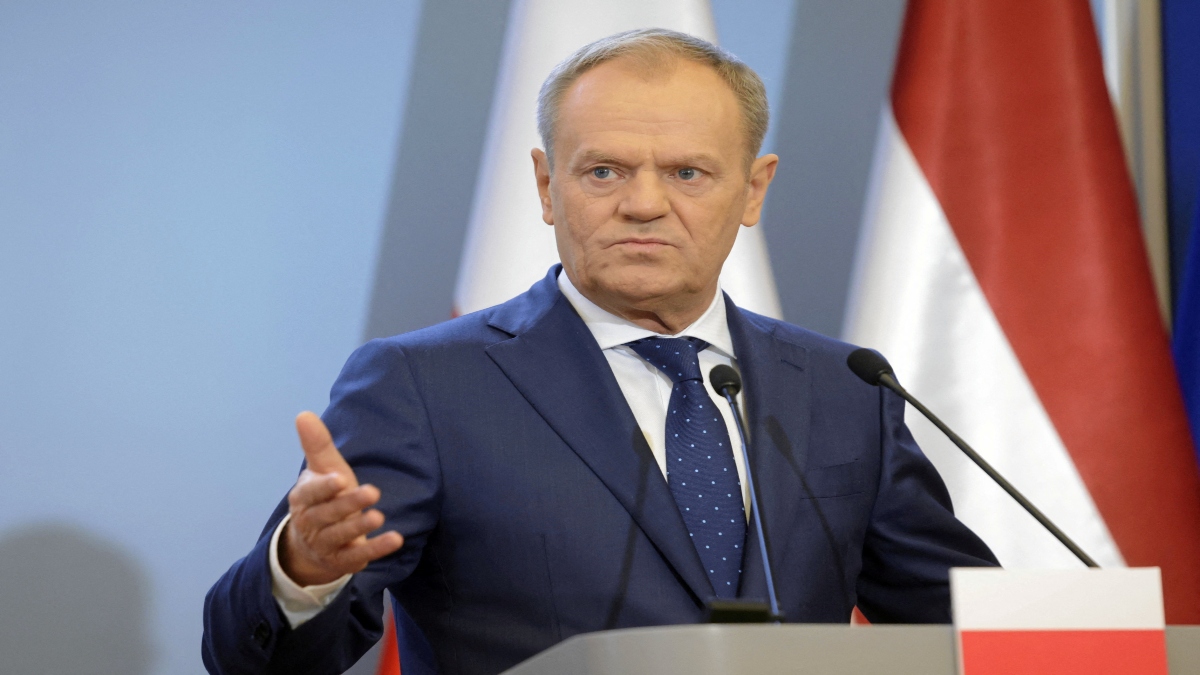)
Two Ukrainians working for Moscow have been identified as suspects in two cases of rail line sabotage in Poland, Prime Minister Donald Tusk said during a speech in parliament on Tuesday.
Two Ukrainians working for Moscow have been identified as suspects in two cases of rail line sabotage in Poland, Prime Minister Donald Tusk said during a speech in parliament on Tuesday.
“The pair have been working and cooperating with Russian services for a long time,” Tusk said, citing information from prosecutors and investigating authorities.
He said authorities knew the identities of the suspects, but they would not be made public until further investigation.
The two incidents between Saturday and Monday damaged a railway line that helps deliver supplies to close ally Ukraine.
Tusk referred to the disruptions as “probably the most serious national security situation in Poland since the outbreak of a full-scale war in Ukraine.”
The first incident involved a steel clamp, which was attached to a track along the line and was “probably intended to derail the train,” Tusk said.
The second was the detonation of a military-grade explosive device during the passing of a goods train on the track.
No one was injured during any of the incidents.
The prime minister said one of the perpetrators was believed to be a Ukrainian citizen, who was convicted of “acts of sabotage” by a Lviv court in May.
The second is a resident of Donbass, the Russian-occupied region in Ukraine, who first crossed into Poland from Belarus this autumn.
It is believed that soon after the incidents, both suspects left Polish territory for Belarus.
In total, 55 individuals have been detained and 23 arrested in connection with acts of subversion in Poland, Tusk said.
Poland – a NATO and EU member – has become the main hub for delivering military and humanitarian aid to its war-torn neighbour.
Several European leaders, including EU chief Ursula von der Leyen, NATO Secretary General Mark Rutte and Ukrainian Foreign Minister Andriy Sybiga, expressed their solidarity with Poland on Monday after the events were announced.
Cybiga suggested on Monday that their aim might be to “test the reactions”.
Tusk claimed that the purpose of the attack also included its “social and political consequences”, including the creation of anti-Ukrainian sentiments.
He described it as “particularly dangerous in countries like Poland”.
Following Tusk’s speech the Kremlin accused Poland of “Russophobia”.
“It would be strange if Russia was not directly blamed,” Kremlin spokesman Dmitry Peskov told state TV. He vehemently rejected allegations of Moscow’s involvement, saying, “Of course Russophobia is growing there.”
In recent years, Poland has restricted the movement of Russian diplomats on its soil, ordered the closure of two Russian consulates and detained a total of 55 individuals suspected of acting on Moscow’s behalf.
According to Tusk, the names of the suspects may be revealed on Tuesday.
end of article

)
)
)
)